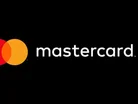Mastercard: Supporting B2B Healthcare With Payments Solution

Leading payments processor Mastercard has launched a new claims payment solution for the B2B healthcare industry. Leveraging its virtual card technology, Mastercard’s solution will help to bring faster payments to healthcare providers & insurers.
Initially rolling out in India, the payments solution is being delivered in partnership with Remedinet, a cloud-based healthtech platform on a mission to simplify the back-end of cashless claims by connecting hospitals with health insurers and third-party administrators.
How does Mastercard’s solution work?
By leveraging virtual card technology, Mastercard’s new end-to-end payments solution works by embedding virtual cards within healthtech platforms that connect payers and healthcare providers, such as Remedinet.
This is achieved through API connectivity, giving companies like Remedinet access to Mastercard’s virtual platform, thus making traditionally complex B2B payments faster and more secure.
As the first to leverage this embedded experience, Remedinet will have access to virtually generated cards – issued by their bank – the moment they submit an authorised medical claim to an insurance company.
This will markedly improve the payments experience for the hospitals Remedinet serves, which historically spend months waiting to receive claim payments. By partnering with Remedinet – which now leverages Mastercard’s virtual cards – hospitals can complete the payout process almost immediately.
Mastercard’s virtual cards will bring benefits for insurers too, by enabling transaction-level data to flow alongside the claim settlement information for every bill that is paid. This introduces greater transparency into the status of a claim as well as easier and automated reconciliation.
Chad Wallace, Global Head of Commercial Solutions at Mastercard, says: “We’re on a mission to integrate our technology into platform providers to drive seamless B2B payment experiences at greater scale.
“As we assessed industries where we can contribute with impact, healthcare emerged as a critical industry to unlock payment efficiencies.”
The importance of solving payments for B2B healthcare
Mastercard’s move to solve payments in B2B healthcare marks a significant step in the marriage of fintech and healthtech to overcome fragmented and inefficient processes that still challenge healthcare providers, particularly in emerging markets like India.
Legacy systems still in use by insurers are amplifying these bottlenecks, which lead to payment delays for healthcare providers, triggering cash flow challenges and often increasing their borrowing costs.
Manual claims processes and reconciliation on the insurer side also reduced the visibility healthcare providers have on individual claims, leading to uncertainty and putting strain on billing teams.
Healthtechs have, though, been the connecting force between all healthcare parties, helping to drive efficiencies for hospitals and their insurers.
Many are startups, though, and lack the independent resources and technology. But, by partnering with the likes of Mastercard (like Remedinet has done), fintech, insurtech and healthtech enablers can access the solutions they need to drive connectivity between healthcare parties and dramatically improve the payments process.
Raja Rajamannar, Chief Marketing and Communications Officer and President of healthcare at Mastercard, adds: ”The healthcare industry is at an inflection point, with evolving digital-first expectations challenging industry norms.
“Around the world, we’ve been working closely with healthcare organisations to better serve their partners and patients with a range of products and services well-tuned to drive simplicity, convenience and efficiency in payments and beyond.”
**************
Make sure you check out the latest edition of FinTech Magazine and also sign up to our global conference series – FinTech LIVE 2024.
**************
FinTech Magazine is a BizClik brand.
- Contact Centre Tech Fails Financial FirmsFinancial Services (FinServ)
- How Marqeta Powers Trading 212's European ExpansionDigital Payments
- Lyca Integrates Revolut Pay in UK Telecom Payments FirstFinancial Services (FinServ)
- Unicaja Partners with Fiserv in Spanish Payments PushFinancial Services (FinServ)



